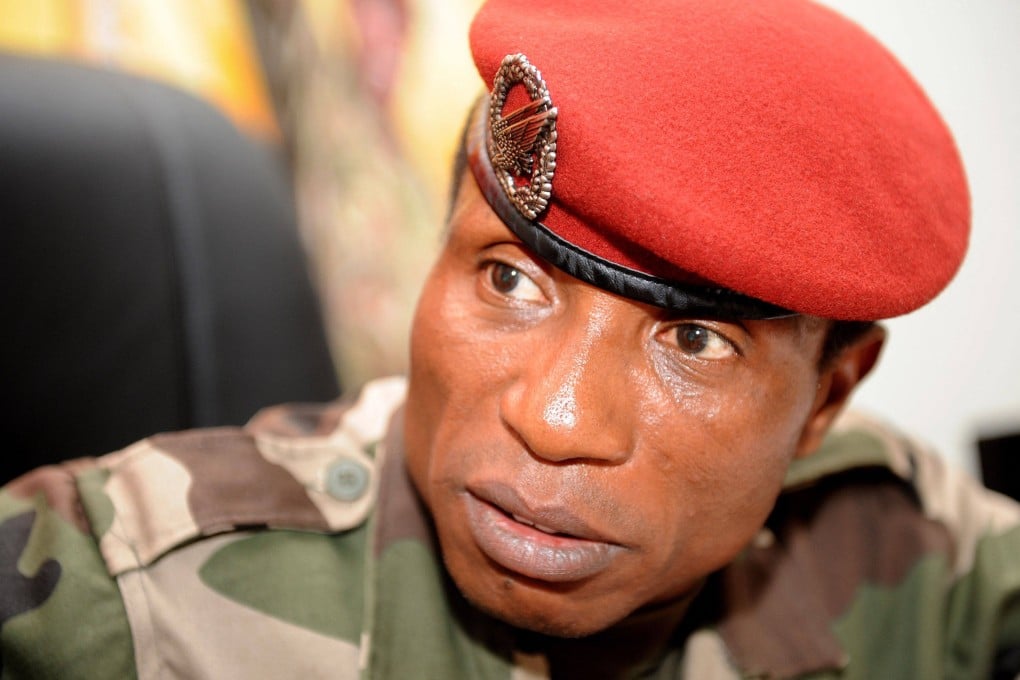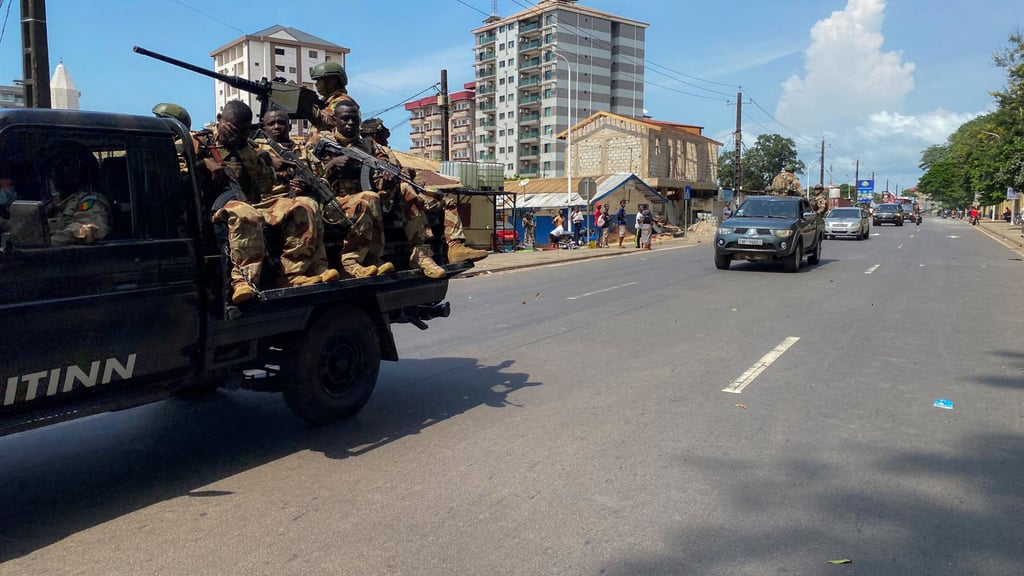Former Guinean dictator Moussa Dadis Camara recaptured after armed jailbreak
- It was unclear whether Camara had escaped of his own free will, and one of his lawyers described the incident as a kidnapping
- At least two other former officials currently on trial over a 2009 massacre during Dadis Camara’s presidency were also taken

Guinea’s ex-dictator Moussa Dadis Camara was recaptured and returned to prison on Saturday, hours after an apparent jailbreak led by a heavily armed commando, the army and his lawyer said.
At least two other former officials on trial alongside Camara over a 2009 massacre during his presidency were taken in the earlier operation that sparked heavy gunfire in the capital Conakry, a minister and lawyers said.
“Captain Moussa Dadis Camara has been found safe and sound and taken back to prison,” the army said in a statement, without specifying the circumstances of the capture.
One of Camara’s lawyers, Jocamey Haba, said his client was back behind bars.

Justice Minister Alphonse Charles Wright said earlier that at around 5am, “heavily armed men” burst into the prison and “managed to leave with four [prisoners] … notably Captain Moussa Dadis Camara”.